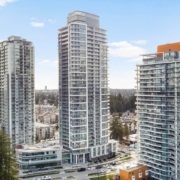The Definitive Guide to Airbnb Income Tax in West Vancouver
Introduction to Airbnb Income Tax in West Vancouver
As a homeowner or property manager operating an Airbnb rental in West Vancouver, it’s essential to be well-informed about the income tax implications that come with this venture. In this comprehensive guide, we will walk you through everything you need to know about Airbnb income tax in West Vancouver, from calculating your taxable income to identifying tax deductions and complying with local regulations.
Airbnb Management in West Vancouver
Understanding the Taxation System for Airbnb Rentals

Before diving into the specifics, let’s briefly discuss how the taxation system works for Airbnb rentals in West Vancouver. Your rental income is subject to both federal and provincial taxes, and you are required to report it on your income tax return. Keep in mind that your tax liability will depend on factors such as your income bracket, rental income, and expenses.
1. Calculating Your Taxable Income
The first step in determining your tax obligations is calculating your taxable income. To do this, you will need to consider the following:
- Gross Rental Income: This refers to the total amount of money you receive from your guests. It includes nightly rates, cleaning fees, and any other additional charges. Be sure to keep accurate records of all income received.
- Deductible Expenses: As a rental property owner, you are allowed to claim certain expenses related to your Airbnb business. These expenses can reduce your taxable income, which in turn lowers your tax liability. Some common deductible expenses include mortgage interest, property taxes, insurance premiums, and maintenance costs.
- Net Rental Income: Your net rental income is the difference between your gross rental income and deductible expenses. This is the amount on which you will be taxed.
2. Reporting Your Airbnb Income
To report your Airbnb income, you will need to complete the T776 Statement of Real Estate Rentals form and attach it to your T1 Income Tax and Benefit Return. This form is used to report your rental income, deductible expenses, and net rental income.
3. Federal and Provincial Taxes
Once you have calculated your net rental income, you will be required to pay both federal and provincial taxes on it. The federal tax rate is determined by your income tax bracket, which varies depending on your total taxable income. In addition to federal taxes, you will also need to pay provincial taxes, which are specific to British Columbia, as West Vancouver is located within this province.
The provincial tax rate in British Columbia is based on a progressive tax system, with rates ranging from 5.06% to 20.5% depending on your income level. Keep in mind that these tax rates are applied to your net rental income after accounting for deductible expenses.
To calculate your combined federal and provincial tax liability, you’ll need to determine your marginal tax rate, which is the sum of your federal and provincial tax rates at your income level. Once you have determined your marginal tax rate, you can multiply it by your net rental income to calculate the total tax amount you owe for your Airbnb rental in West Vancouver.
Remember to consult the Canada Revenue Agency (CRA) and the British Columbia Ministry of Finance websites for up-to-date information on tax rates and regulations, as they may change periodically.
Tax Deductions and Credits for Airbnb Hosts

To maximize your tax savings, it’s important to be aware of the various tax deductions and credits available to Airbnb hosts in West Vancouver. Some of the most common deductions include:
- Advertising Expenses: Any costs associated with marketing your rental property, such as listing fees and promotional materials, are deductible.
- Utilities: You can deduct a portion of your utility expenses, including electricity, gas, water, and internet, based on the percentage of your property used for rental purposes.
- Repairs and Maintenance: Routine maintenance and repair costs necessary to keep your rental property in good condition are deductible. This includes expenses for services such as cleaning, landscaping, and pest control.
- Depreciation: You can claim capital cost allowance (CCA) on your rental property, which allows you to recover the cost of your property over time. Be cautious when claiming CCA, as it may increase your capital gains tax liability when you sell the property.
- Travel Expenses: If you need to travel to manage your rental property, you can deduct related expenses such as transportation, meals, and accommodations.
- Home Office Expenses: If you use a portion of your home for Airbnb-related activities, you may be able to claim home office expenses, such as a portion of your mortgage interest, property taxes, and insurance premiums.
Local Regulations and Compliance for Airbnb Hosts in West Vancouver

In West Vancouver, the regulations surrounding home rentals are clear, especially when it comes to the burgeoning market of short-term accommodations offered through platforms like Airbnb or VRBO. The district enforces a strict policy that does not allow for residential properties to be rented out for periods shorter than 30 days. This stance is aimed at preserving the quality and character of residential neighborhoods.
The district, however, recognizes the advantages of homeowners having secondary suites on their properties. These units can provide valuable housing solutions and offer homeowners a means to earn additional income. To be considered lawful, these suites must conform to a set of requirements, including adherence to the BC Building Code, registration with the local authority, and obtaining the appropriate license based on the suite’s usage.
Detailed conditions for these secondary suites include ensuring they have separate heating systems, adequate fire safety measures, and meet certain construction standards to guarantee the safety and comfort of occupants. The process of registering a secondary suite is mandatory, beginning with a registration fee of $450 for the first year, followed by varying annual renewal fees depending on the occupancy status of the suite.
Neglecting to register a secondary suite could lead to substantial penalties, such as fines and a reduction in the property’s market value. Moreover, unregistered suites may not be covered by insurance and might lack essential safety features. Homeowners who decide against maintaining a secondary suite have the option to decommission it, which involves several steps, including the removal of kitchen facilities and making certain electrical modifications.
To sum up, while West Vancouver imposes limitations on short-term rentals, it also sets forth explicit guidelines for the establishment and maintenance of legal secondary suites. This approach underscores the importance of safety, community preservation, and adherence to local bylaws.
Check out What is the Airbnb business regulation in BC
Record-Keeping and Tax-Filing Tips for Airbnb Hosts

Maintaining accurate and organized records is crucial for tax compliance and financial success as an Airbnb host. Here are some tips to help you keep track of your rental income and expenses:
- Use a Separate Bank Account: Opening a separate bank account for your Airbnb business can make it easier to track your income and expenses, and it simplifies the tax filing process.
- Maintain Detailed Records: Keep detailed records of all your rental income and deductible expenses. This includes receipts, invoices, and other documentation related to your Airbnb business.
- Track Expenses by Category: Organize your expenses by categories, such as utilities, maintenance, and advertising. This will make it easier to complete your tax forms and identify potential tax deductions.
- Stay Up-to-date on Tax Changes: Tax laws and regulations can change from year to year. Stay informed about any updates that may affect your Airbnb income tax obligations.
- Consider Hiring a Tax Professional: If you’re unsure about your tax obligations or need assistance with your tax return, consider hiring a tax professional who specializes in rental property income tax.
Other Taxes and Fees that May be Applicable to the Airbnb Business in West Vancouver

In addition to federal and provincial income taxes, there are other taxes and fees that may be applicable to your Airbnb business in West Vancouver. Here are some key taxes and fees to be aware of:
1. Goods and Services Tax (GST):
The Goods and Services Tax (GST) is a federal tax levied on most goods and services in Canada. As an Airbnb host, you may need to charge and remit GST on your rental income if you meet certain criteria. If your total taxable revenue, including your Airbnb income, exceeds CAD 30,000 in a 12-month period, you will be required to register for a GST/HST account and collect GST from your guests.
2. Provincial Sales Tax (PST):
British Columbia imposes a Provincial Sales Tax (PST) on various goods and services. PST of 8% applies to sales of short-term accommodation provided in B.C. unless a specific exemption applies. It is important to review the current PST regulations to ensure compliance.
3. Municipal and Regional District Tax (MRDT):
The Municipal and Regional District Tax (MRDT) is a tax collected by certain municipalities and regional districts in British Columbia, including West Vancouver, to fund local tourism marketing, programs, and projects. Airbnb hosts may be required to collect and remit MRDT on their rental income. The MRDT rate varies by jurisdiction, so it’s important to check the local MRDT rate applicable to West Vancouver.
Conclusion
It’s crucial to stay updated on any changes in federal, provincial, and local tax laws that may affect your Airbnb business in West Vancouver. Consult the Canada Revenue Agency (CRA), the British Columbia Ministry of Finance, and the local West Vancouver government websites for the most up-to-date information on tax rates, regulations, and filing requirements.












